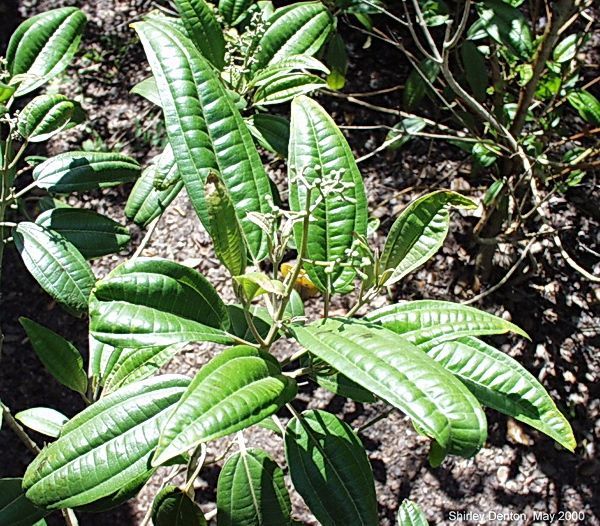FNPS Plant Database
Miconia bicolor
Nomenclature
Common Name:
Synonym(s):
Genus species:
Family:
Melastomataceae
Plant Specifics
Form:
Size:
Life Span:
Long-lived perennial
Flower Color:
Fruit Color:
Phenology:
Noted For:
Landscaping
Recommended Uses:
Considerations:
Availability:
Propagation:
Light:
Moisture Tolerance:
Always Flooded---------------------------------Extremely Dry
□□□□□□□□□□□□□□□□□□■■■■■■■■■■■■■■■■■■■■■□□□
Somewhat moist, no flooding -to- Very long very dry periods
Salt Water Flooding Tolerance:
Unknown
Salt Spray/Salty Soil Tolerance:
Low/no tolerance of salty wind or direct salt spray
Soil or Other Substrate:
Sand, Clay, Loam, Lime Rock
Soil pH:
Suitable to Grow In:
10A,10B,11

USDA zones are based on the average annual extreme minimum winter temperature.
Don't know your zone? Click here to search by zip code.
Vouchered In:
Ecology
Wildlife:
Insect pollinated, largely by bees.
Fruits used by birds.
Native Habitats:
Comments:
Ethnobotany:
General Comments:
Citations:
Gilman, Edward, Ryan W. Klein, and Gail Hansen. (2024). Tetrazygia bicolor Florida Tetrazygia, West Indian Lilac (FPS-577). ( https://edis.ifas.ufl.edu/publication/FP577). Accessed 2026. Institute of Food and Agricultural Sciences, University of Florida, Gainesville, FL.
Haehle, Robert G. and Joan Brookwell. (1999). Native Florida Plants. Gulf Publishing Company. Houston, TX.
Wurdack, J. J, & Kral, R. (1982). The Genera of Melastomataceae in the Southeastern United States. Journal of the Arnold Arboretum, 63(4), 429–439. ( https://www.jstor.org/stable/43821678 ). Accessed 2026.








